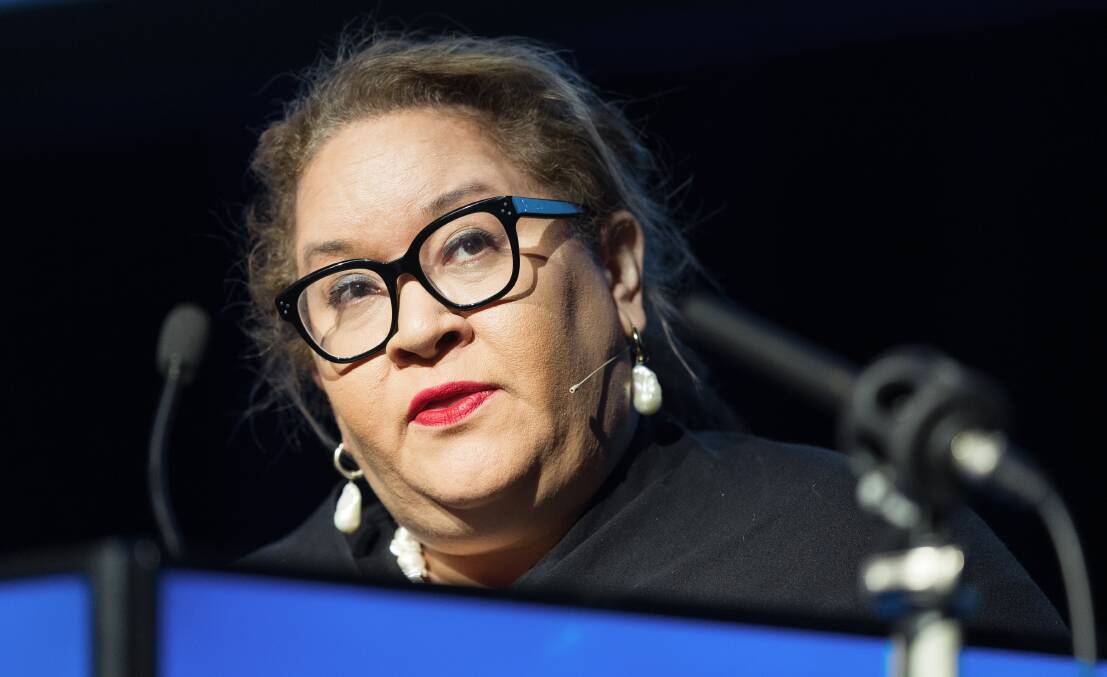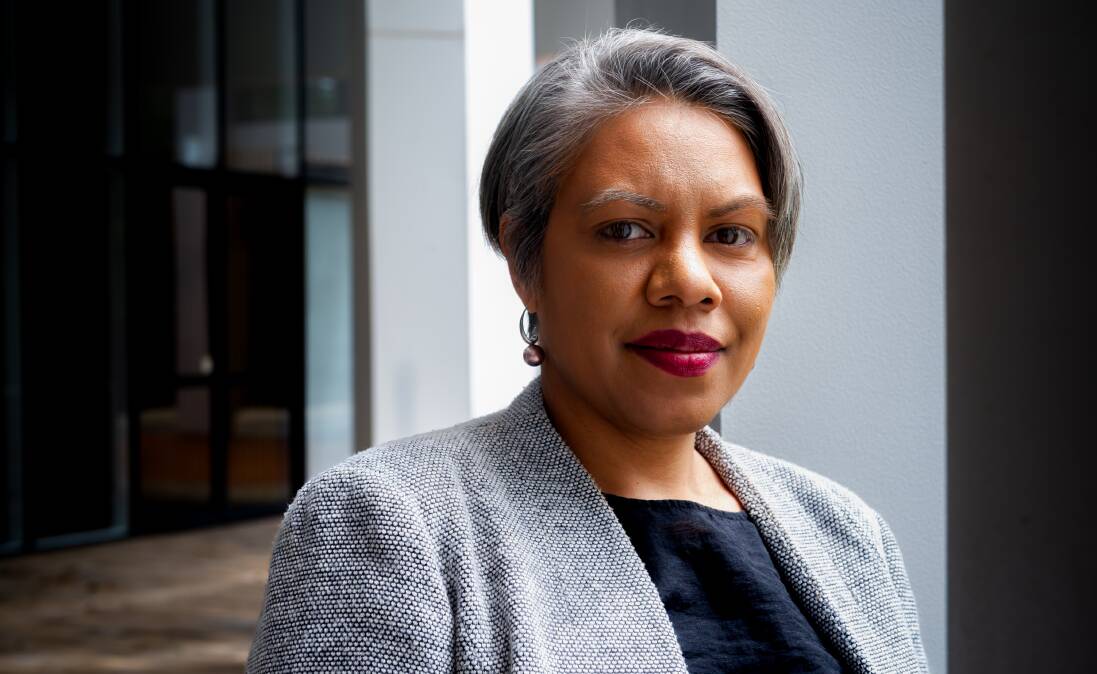Universities have been urged to take a stance on an Indigenous Voice to Parliament in the lead-up to the referendum later this year.
Aboriginal activist and constitutional law expert Professor Megan Davis told the Universities Australia conference in Canberra on Wednesday that higher education institutions had a role in supporting the Voice as well as facilitating debate.
"I don't really stomach the 'we are mere facilitators of the debate' approach," she said.
"Universities are saying they don't want to be political but the decision not to take a stance for Uluru and the referendum for a Voice to Parliament is a political decision. Silence is political."
The Uluru Dialogue co-chair pushed back against the idea that the Prime Minister was withholding information on the Voice.

She said Anthony Albanese was continuing to consult with Indigenous people and enough information would be shared with the Australian people to allow them to make an informed decision.
"We don't want Australians to vote on a fully-fledged model A or on B, on C, because then they'll be voting on that model.
"We don't want the model to be stuck in time. We want the agility of the parliament to be able to change that model. The model of 2023 might not be the model of 2052."
She said Australians would be voting on the principle that Indigenous people should be consulted by the Parliament when they make rules and policies about them. The Parliament would then create legislation for the Voice.
"That is what constitutions are for, they are for principle. Parliament is for the legislation. Parliament is for the operating manual. That's how it's always been done."
Professor Davis said universities were at risk of falling foul of regulatory ritualism, such as acknowledgements of country and reconciliation action plans, which is designed for Indigenous participation but loses sight of the substantive goals.

The University of Canberra's new pro vice-chancellor Indigenous leadership Professor Maree Meredith said she wanted to relocate to the national capital as the referendum gained momentum.
"Our positions are political and we have to be engaged in the Voice and what that actually means for us in our sector," Professor Meredith told The Canberra Times.
"It's an opportunity for us to reflect on our civic obligations, but also to take a deeper look, and think beyond our [reconciliation action plans]."
Professor Meredith said she would be voting yes in the referendum and would be looking to find opportunities for students to take on a leadership role on the Voice.
"This is where the opportunity is, to bring students in to have their voice and our responsibility is to ensure that our students actually the space to be able to do that."
She said individual universities would be making their positions known and starting information campaigns to provide awareness and factual information on the constitution to help Australians make their decisions.
Professor Meredith said universities played a similar role in providing expertise during the COVID-19 pandemic.
"It's about experts and expertise. We should not step back from that. We should be bringing forward that expertise."
We've made it a whole lot easier for you to have your say. Our new comment platform requires only one log-in to access articles and to join the discussion on The Canberra Times website. Find out how to register so you can enjoy civil, friendly and engaging discussions. See our moderation policy here.







